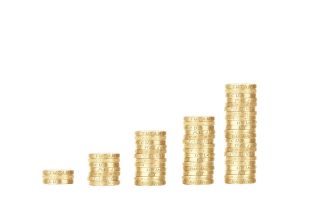Relationships
Making Meaning vs. Making Money
Personal Perspective: Living with less stuff but more meaning.
Posted March 14, 2024 Reviewed by Kaja Perina
Key points
- When it comes to money, it is important to ask, “How much is enough?”
- Ask yourself if you are willing to change and live with less.
- We can learn from people who live fulfilled, meaningful lives with relatively few resources.

The famous behavior psychologist, Kurt Lewin created a simple change process involving three important steps: 1. Unfreeze, 2. Change, and 3. Refreeze. For example, if you have a block of ice, you first unfreeze it into water; second, pour the water into another mold or shape; and third, refreeze or solidify the water into the new shape. In order for change to happen, you must take action to cease what you are currently doing, remold your behavior, and then solidify it with consistent action.
We often rebel against the first step, the unfreezing or melting of “the way things are” or “the way we have always done things.” We want things to stay the same so we can continue to feel comfortable and more in control.
However, often, the change is thrust upon us from outside. For example, over the last few years, we have been confronted with ever increasing prices on groceries, energy, and everyday items, leading us to feel disoriented, confused, and often times at a loss as to how to manage paying the higher prices with the same amount of money in our bank accounts. In other areas of our society, shifts in how we interact with others, the use of digital everything, and increasing incidence of loneliness have caused some people to feel at a loss, resulting in an existential vacuum of meaning.
It is my opinion that over the last three or four decades, many people have shifted from the pursuit of living a meaningful life, to living a life centered around money. While money has always been important to survive in contemporary society, it now becomes a question of how much is enough? This question is of course personal – the answers vary depending on how you define your true needs.
On one end, not having enough money to cover monthly food, energy, housing, and medical bills is extremely stressful. On the other end, people who may have a lot of money may still feel they don’t have enough (…not enough to cover the ever increasing list of what they want, not enough when measuring their wealth scorecard against others, not enough when they are worried about losing it all, etc..). Despite knowing that greed is often the root of suffering, the quest for more and more continues.
When confronted with change from outside of ourselves, we can first stop and reflect on if and how we want to change from within. Here are 3 questions to ask:
1. What amount of money do I really need to live a basic life?
There is a difference between needs, wants, and luxuries. The challenge is that we keep redefining what our necessities are. Look around and ask yourself, what percentage of the stuff you have do you really need? Ask yourself if you are willing to change and live with less? Can you focus your spending on your basic necessities and start to live without luxuries? This action may give you great emotional freedom when confronting change from the outside, like inflation, that you can not control.
2. What are my greatest money fears and where did these fears come from?
Often money fears are passed on through family conditioning. Reflect on the source of your fears and whether these fears are still valid for your life today. Reflect on whether you have a scarcity mindset (there will never be enough), whether you are more concerned about outside opinions (others judging your success level based on your wealth), or whether you are ignoring your financial issues. Start today to not let money control you. Shift from the way you have always approached money to start to reshape your behavior (Step 2). Consider putting aside $5 a day ($1,825 per year) to build a fund to pay for unforeseen expenses. Practicing this daily will help you move to Step 3: Refreezing into a new habit or way of living.
3. What is my definition of a meaningful life?
If money was not the goal of life, if your life did not revolve around money, how would you like to live? How would you like to contribute to others and make a difference in their daily lives? How would you like to express yourself? How would you strengthen the relationships in your life?
Downsize your stuff, upsize your friendships. Practice interacting with others as human beings, in a meaningful way and not from a standpoint of who they are and how much money, power, or status they have.
There are many people who live fulfilled, meaningful lives with few resources. Perhaps these people should be our inspirational role models instead of billionaires!
Remember: The will to meaning comes from within. It is this connection to meaning that will sustain you and guide you through whatever life challenges come your way.


